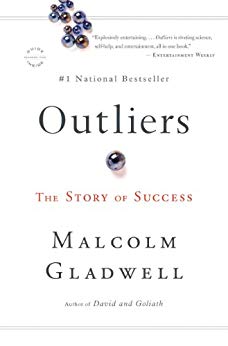

This article is an excerpt from the Shortform summary of "Outliers" by Malcolm Gladwell. Shortform has the world's best summaries of books you should be reading.
Like this article? Sign up for a free trial here .
What is accumulative advantage? Why does it make such a difference in a person’s success? Learn about the opportunities of accumulative advantage in this excerpt from Outliers by Malcolm Gladwell.
Accumulative Advantage: Analogy to a Successful Seed
One way to understand how accumulative advantage impacts our success is to compare ourselves to seeds.
Seeds can’t grow into successful trees if the conditions aren’t right. The tallest tree (the “outlier”) isn’t necessarily the product of the hardiest seed. The seed became the tallest tree because it fell upon fertile soil, was exposed to plentiful sunlight and water, and wasn’t chopped down or choked by weeds. The seed’s environment gave it the many opportunities it needed to grow into a tall tree.
Similarly, the people who succeed aren’t necessarily the ones with inherent “outlier” qualities. External factors like Accumulative Advantage help determine who has the opportunity to meet his potential and who doesn’t.
An ideal environment for a child, for example, might include financially stable parents, a safe neighborhood, access to good schools and the opportunity to engage in extracurricular activities. These conditions create opportunities that help the child (the seed) grow into a highly successful adult (the tallest tree). And through Accumulative Advantage, these conditions work on each other –
Advantages Early in Life Accumulate
Just as it’s best if the seed falls on fertile soil from the get-go, children who get opportunities for success early in life have a huge advantage over those whose opportunities come later. There’s a big reason for this: children who receive early opportunities for success benefit from accumulative advantage.
What is accumulative advantage? These are advantages that tend to snowball into greater and greater opportunities over time. Just as a few dollars invested in the stock market can grow to thousands over a lifetime, a small advantage can compound over the months or years, leading to huge successes later on.
For example, imagine two families. One is well-off and the other is not, and both have daughters who dream of being professional violinists. Both start off with equal skill.
But over time, accumulative advantage starts setting in. The well-off parents send their daughter to a private instructor, which the other family can’t afford. The second family encourages their daughter to play in her school’s orchestra, which practices once a week.
Who has the better chance at becoming a successful violinist? While both children may start with the same skill level and potential, the initial advantage of the first child accumulates—a private teacher leads to more individualized instruction, which leads to a quicker progression through skill levels, which leads to more confidence in violin skills, which leads to better performance, and so on. The accumulative advantage is exponential, as each advantage builds on the other.
Disadvantages also accumulate. For the second child, playing in the orchestra of a big school means less individual attention. Less attention means less explicit instruction, which leads to fewer skills developed and lower performance, which means to even less attention, and so on.
Accumulative Advantage Example: Canadian Hockey Players
Hockey in Canada is a meritocracy. Thousands of little boys play at the novice levels, but only the best graduate up the ranks to the elite league, Major Junior A. This is a fair system, giving equal opportunity to all players to demonstrate their skills.
But there’s one oddity. In any group of elite hockey players, 40% of players will have been born in January, February, or March. Is this a coincidence?
As it turns out, the Canadian hockey pipeline is not as meritocratic as it appears. The system gives accumulative advantage to some people. Kids born in January, February, or March have an advantage, especially over those born in October, November, or December.
Why is this an accumulative advantage? Let’s start at the beginning. The cut-off date for playing hockey in a given age-class in Canada is January 1st. This means that a child who was born on December 31, 2007 could play alongside somebody who was born on January 1, 2007 and is a full year older.
In childhood, a year makes a big difference. An extra year’s worth of growth and development means that players with January and February birthdays are likely significantly larger, stronger, and more coordinated than their November- and December-born peers.
The Accumulative Advantage Accelerates
Because these players are larger and stronger, coaches and scouts believe that they have the most natural talent, even when their skills are ordinary, relative to their age.
Scouts select these players for elite teams and coaches groom them for higher-level leagues by devoting more attention to the development of their skills. Because people believed these players were more talented, they became more talented.
This early advantage snowballs into an accumulative advantage. Children whom coaches and scouts single out as better athletes due to the arbitrary advantage of their birthdays receive the resources and support to become better athletes.
Smaller players are overlooked and they don’t received resources or support. As a result they, don’t perform as well, which makes sure they get even less attention and support. Their disadvantage snowballs.
———End of Preview———

Like what you just read? Read the rest of the world's best summary of "Outliers" at Shortform . Learn the book's critical concepts in 20 minutes or less .
Here's what you'll find in our full Outliers summary :
- What makes some people outliers, and most others not
- Why some genius outliers end up failing in life
- Why Asians are good at math, and other curiosities of culture






